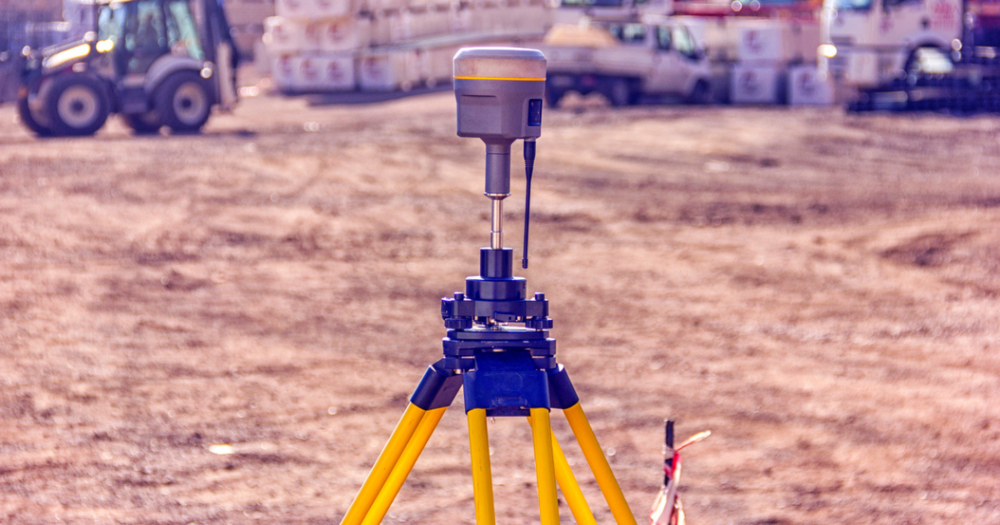
Global Positioning System (
GPS) technology has revolutionized land surveying by providing accurate and efficient spatial data collection. Traditional surveying methods often involve complex procedures and can be time-consuming. GPS equipment simplifies these processes by offering real-time data acquisition, improving productivity and accuracy.
Types of GPS Equipment
The variety of GPS equipment available caters to different surveying needs and levels of precision. Understanding the various types can help you choose the right tool for your project requirements.
For a better understanding of the different types of GPS surveying equipment, read:
What kind of GPS do surveyors use?
Surveyors use different types of GPS equipment depending on the specific requirements of their projects. High-precision tasks, such as boundary determination and construction layout, often require RTK GPS and GNSS receivers due to their centimeter-level accuracy and performance. For more basic tasks, surveyors may opt for handheld GPS units.
Read
How to Use GPS for Land Surveying for more information.
Factors When Choosing GPS Equipment
Considering the following factors, you can select the most appropriate GPS equipment for your needs.
- Accuracy requirements: The accuracy required for surveying tasks can vary significantly depending on the project's nature. For example, construction layout and cadastral surveys demand centimeter-level precision, necessitating advanced systems like RTK GPS.
- Budget estimations: High-end models such as RTK GPS and GNSS receivers offer superior accuracy and advanced features but are more expensive. Conversely, budget-friendly options like handheld GPS units provide basic functionality suitable for less demanding tasks.
- Environmental conditions: Surveying often occurs in diverse and challenging environments, making selecting GPS equipment that can perform reliably under various conditions essential. Factors such as terrain, weather, and location can impact the effectiveness of GPS systems.
- Ease of use and training: Another consideration is the usability of GPS equipment. User-friendly interfaces and straightforward operation can reduce the learning curve and increase productivity.
- Integration with other surveying tools: Compatibility with other tools and software is vital for seamless data collection and processing.
For a deeper dive into these elements, check out
3 Factors for Selecting GPS Survey Equipment and GPS Surveying Equipment Budget Considerations.
Recommended GPS Equipment for Different Surveying Needs

Here are recommendations for different levels of surveying expertise and project requirements.
Entry-Level Surveyors
For beginners and small projects, portability, ease of use, and affordability are key considerations. Handheld GPS units are ideal for entry-level surveyors due to their simplicity and
sufficient accuracy for basic tasks.
Suggested Models and Their Features:
Benefits:
- Ease of use: Minimal training is required.
- Affordability: Low upfront costs make it accessible for small budgets.
- Portability: Lightweight and compact, suitable for fieldwork in various conditions.
Intermediate Surveyors
Intermediate surveyors handling medium-sized projects need equipment that balances cost with boosted features. Entry-level GNSS receivers and mid-range RTK systems offer improved accuracy and versatility.
Suggested Models and Their Features:
Benefits:
- Improved accuracy: Increased precision compared to handheld GPS units, making them suitable for detailed surveys.
- Versatility: Capable of handling a variety of surveying tasks, including topographic surveys and construction layout.
- Cost-effective: Provides advanced features without the high costs associated with top-tier models.
Advanced Surveyors
Advanced surveyors involved in large-scale and high-precision projects require top-of-the-line GPS equipment. High-end GNSS receivers and RTK systems deliver exceptional accuracy and performance for complex and demanding surveys.
Suggested Models and Their Features:
- Stonex S900 GNSS Receiver and Receiver Bundle: This high-end GNSS receiver offers exceptional accuracy and advanced features for demanding surveys.
- Stonex SR35 U UHF Radiomodem: This receiver supports advanced communication for high-precision GNSS applications.
- Stonex Cube-a GPS Software: It features an integrated software solution that boosts the capabilities of high-end GNSS equipment.
- Trimble R12 GNSS System: This model offers top accuracy and advanced features, such as CenterPoint RTX correction service and SurePoint tilt compensation.
- Leica GS18 T GNSS RTK Rover: Known for its rapid initialization and precise measurements, this rover is equipped with the latest GNSS technology and integrated sensors for superior performance.
Benefits:
- Maximum accuracy: Centimeter-level precision guarantees the highest standards of data integrity.
- Advanced functionality: Features like multi-constellation tracking, real-time data correction, and tilt compensation facilitate complex surveys.
- Durability and reliability: Designed to withstand harsh environments for consistent performance across diverse conditions.
Check out what Baseline Equipment offers for
all types of GPS surveyor equipment.
Additional Considerations

When investing in GPS equipment for surveying, there are additional factors to consider beyond the immediate use and cost that impact your project's long-term success and efficiency.
Training and Support
The most advanced and feature-rich GPS equipment will only be as good as the operator's ability to use it.
- Training: Look for manufacturers that offer training programs, including online tutorials, webinars, and hands-on workshops.
- Technical support: Verify the manufacturer provides strong customer support to assist with troubleshooting, software updates, and maintenance issues.
- User community and forums: Engaging with user communities and forums can provide additional insights and tips from experienced users.
Future-Proofing
As technology evolves, so too do the capabilities of GPS equipment. Future-proofing your investment involves considering potential technological advancements and checking that your equipment can adapt to changing needs.
- Software updates: Choose equipment that offers regular updates to stay current with the latest improvements and features.
- Compatibility: Verify your GPS equipment is compatible with emerging technologies, such as new satellite constellations or advanced data processing software.
For more on training, support, and future-proofing, read
3 Factors for Selecting GPS Survey Equipment.
Selecting the Right GPS Survey Tools
Choosing the right GPS equipment for your surveying needs is a critical decision that can significantly impact your projects' efficiency, accuracy, and success. So whether you’re an entry-level surveyor needing a simple and affordable solution or an advanced surveyor requiring top-of-the-line equipment for high-precision tasks, options are available.
Explore the range of
GPS equipment available at Baseline Equipment for comprehensive solutions for your specific surveying needs.
Explore how to pick GPS survey equipment tailored to your needs! From basic handheld units to advanced GNSS receivers, find the perfect fit.